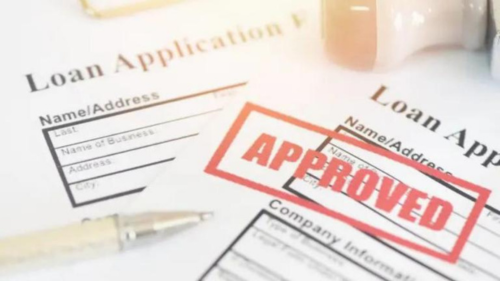Applying for a mortgage approval is a long and tedious process. The time it takes also depends on where you start—if you’ve found a home yet, what type of loan you are getting, how prepared you are with your documents, what type of lender you will be borrowing from, etc. But if you are already nearing your closing day and haven’t heard about the current status of your mortgage application, it can be nerve-wracking and might push you to check your other options if they fall through. Let’s discuss this matter further so you know what to expect and get more prepared.
How Long Before Closing Is a Mortgage Loan Approved?
Before getting an actual mortgage, it is better to get pre-approval first. Getting mortgage pre-approval is optional but has its benefits like knowing your mortgage affordability, locking in low interest rate, and it shows that you are a serious buyer. You can get a mortgage loan pre-approved 90 to 120 days prior to the closing date of your property purchase. This does not guarantee that your mortgage will be approved, so still make sure that there is no substantial change in your financial standing during the purchase period where your lender will be alarmed at your ability to pay your mortgages. You want to ensure your mortgage will be funded in time for closing your dream home.
For the actual mortgage application process, big banks like TD, usually take around 30 to 45 days to process a mortgage loan application. They typically give you a conditional decision and an estimated closing cost within 1 to 3 days of your application. Then comes the long process of inspection, home appraisal and underwriting, after which the closing agent will inform you of your closing date, time and other information. The bank will inform you of your closing cost 24 hrs before the closing date so you can prepare the bank check for the amount.
Alternatively, with private lenders, you can get your mortgage application approval on the same day to a week maximum. This is because private lenders match all borrowers with tailored loans and facilitate a streamlined approval process that simplifies mortgage financing as much as possible.
Does a Closing Date Mean the Loan is Approved?
The closing date marks the finalization of the property title transfer to the new homeowner. This is when both parties, including the lawyers, have a meeting wherein the buyer will review and sign the paperwork on the mortgage loan, down payment, closing cost, purchase price, and the title of the home. It’s important to note that the closing date does not guarantee loan approval. Therefore, it’s crucial to have all the necessary funds in place to finalize the sale on the agreed-upon date.
During the closing day, buyers typically sign documents prepared by their notary or lawyers regarding the mortgage loan and property purchase. Second, the buyer is given the amount needed to “close” the property through a bank draft. This amount is usually the remaining down payment and closing costs (commissions, lawyer’s fees). Upon fund confirmation, the notary or lawyer registers the property with the Land Title Office for official transfer. The seller will receive the proceeds from the sale only after settling the mortgage balance and closing costs.
Can You Be Denied a Mortgage After Closing?
The scary reality is yes, you can be denied a mortgage even after closing. Banks and other mortgage lenders have the legal right to go back on the mortgage commitments they issue and reject your application. Below are some reasons why banks and lenders terminate mortgages:
- Wrong, inconsistent, or inaccurate information in your mortgage application.
- Changes in your employment status (job loss, new job started, etc.).
- Changes in your financials like debt payments, debt status, or a new additional loan.
- New negative findings on your credit report.
- Issues with the property appraisal report or changes and/or additional findings in the physical condition of the property.
- Issues on the property title or other legal issues.
- Policy changes in the bank or the Federal and Provincial government.
In order to prevent the cancellation of your mortgage, it is imperative that you maintain a consistent and stable financial situation while avoiding any major changes that could potentially harm your financial standing.
What Happens if My Mortgage Falls Through on Closing Day?
This is a dreaded scenario for all home buyers— to almost have their dream home, only to be stopped from getting it because their mortgage loan fell through. What you can do is try to apply for an emergency mortgage loan from a private lending organization. Designated as C Lenders, they serve borrowers rejected by A or B lenders, like banks and credit unions. Private Mortgage Lenders accommodate borrowers with bad credit, low income, no income, or hard-to-prove income which makes them riskier investments. Due to this, private lenders impose rates of 8% to 12% and fees of 4% to 6% —the highest among mortgage providers. Temporary measures until the borrower’s finances improve, enabling qualification for long-term loans from traditional lenders with lower rates.
How Long Does It Take to Close?
The average time to close a mortgage ranges from 45 to 60 days. It spans from applying for the loan to receiving funds on closing day to complete the home purchase. Mortgage closing time varies based on factors such as loan type, purpose, credit profile, and pre-approval status. Below is the list of steps when buying a house and an estimated timeline of how long each process takes, assuming you’ve already found a home:
- Negotiating the offer on the house: 1 to 5 days
- Escrow deposit: 5 to 10 days
- Title Search and Title Insurance: 1 to 2 weeks
- Home Inspection: 1 day
- Finalizing the purchase agreement: 1 to 3 days
- Mortgage application completion: 1 day
- Home appraisal: 5 to 10 days
- Mortgage loan approval: 2 to 4 weeks
If you want to close in your house fast, pre-qualify for a mortgage loan as early as when you start looking at a house, condo or cottage.
On the other hand, if you are looking into borrowing from private mortgage lenders, the closing time is much faster. Private lenders prioritize property value over credit history, expediting loan approval, often within a day, bypassing time-consuming checks. You can have your money released in as little as 48 hours to three weeks. Connect with a private lender who empathizes with your homebuying journey and addresses your financial worries effectively. Mortgage Broker Store works with a network of private lenders across the GTA and is more than happy to guide you in important decisions that you will be making during the lending process. Get in contact by filling out the free quote information below.




